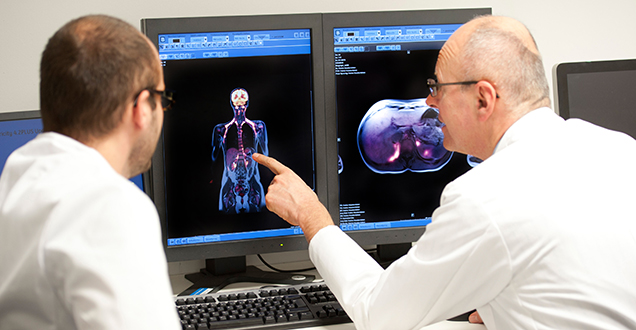
Research in Heidelberg
Innovative and international
A hub for cutting-edge international research. Heidelberg is one of the top locations in the world for the up-and-coming industries of biotechnology and organic electronics. Outstanding leading-edge research clusters and respected research bodies like the European Molecular Biology Laboratory, the German Cancer Research Center and four Max Planck institutes all contribute to Heidelberg' prestige as a center for research.
Top-level research at Heidelberg University. Heidelberg University has received awards for its concept of a Comprehensive Research University as well as for two research groups through the German Universities Excellence Initiative: the 3D Matter Made to Order and STRUCTURES Clusters of Excellence. As many as 17 Collaborative Research Centers and seven Research Training Groups at the University are funded by the German Research Foundation. The numerous grants awarded to scientists and scholars at Heidelberg University also testify to its outstanding research credentials. In addition, Heidelberg University Hospital is one of the most widely-respected locations in Europe for medical treatment, research and teaching.
Joint research for fighting cancer. An ecellent research cooperation is the National Center for Tumor Diseases (NCT) Heidelberg, a joint facility of the German Cancer Research Center, the Heidelberg University Hospital and the German Cancer Aid. The NCT combines excellent care for patients with innovative cancer research. Additionally, the research partnership between the ZMBH (Zentrum für Molekulare Biologie der Universität Heidelberg) and the German Cancer Research Center’s Cell Biology and Tumor Biology research program is a notable example of collaborative research in Heidelberg. Involving over 400 scientists, it makes an important contribution towards tumor research and consolidates Heidelberg's leading role on the international stage in the field of life sciences.





